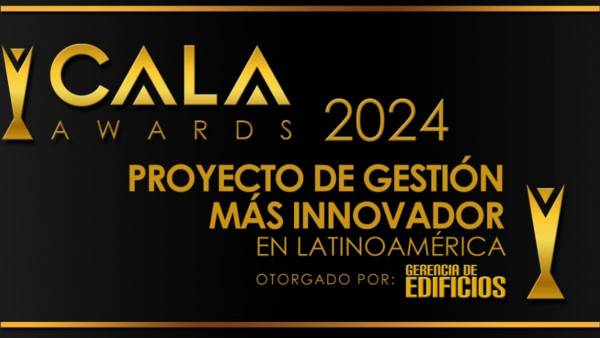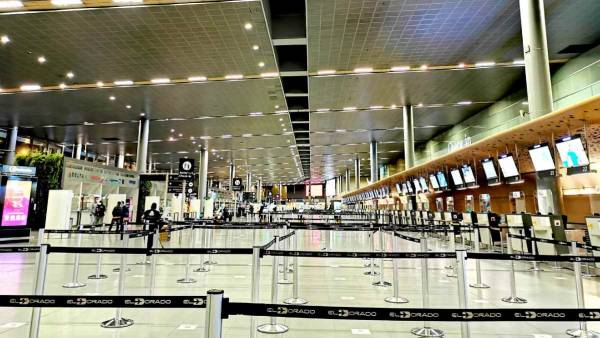 Brazil's hotel sector will have its litmus test between 2014 and 2016. At the head of the preparations is a single man, Enrico Fermi Torquato, who represents all the administrators in front of the Government of the country.
Brazil's hotel sector will have its litmus test between 2014 and 2016. At the head of the preparations is a single man, Enrico Fermi Torquato, who represents all the administrators in front of the Government of the country.
by Vanesa Restrepo
These days Brazil faces two great challenges that will test the tourism sector in general, it is the organization of the two main sporting events in the world: the World Cup and the Olympic Games.
The hotel sector is one of the calls to lead the renovation of cities and to expand to welcome a million visitors, including politicians, high dignitaries, top-notch athletes, journalists from all latitudes and tourists eager for new attractions and eager to know the country that leads the statistics of economic growth in Latin America.
Such responsibility then demands coordination, associative management and representativeness before the government and in the hotel sector all these responsibilities fall on one man: Enrico Fermi Torquato, who was elected to occupy the presidency of the Brazilian Hotel Association, ABIH, during the most critical period of administrative management in the face of major events: from 2011 to 2013.
His arrival at the presidency of the most important association in the country was not a coincidence. Fermi Torquato has 17 years of experience as a partner and hotel manager in Natal, the town where he was born 48 years ago, and since 1998 he has been linked to management positions at abiH, including chief financial officer (1998 – 2002 and 2004 – 2006) and vice president (2002 – 2004).
A believer in marketing policy
Enrico Fermi Torquato was trained as a civil engineer, but most of his experiences have been concentrated in hotel marketing management, perhaps that is why he has accumulated two MBAs, one of them in Marketing and the other in Business Management with the Getúlio Vargas Foundation, recognized for research and teaching in economic issues.
At the age of 26, he joined the Natal Praia Hotel in the commercial and operational area, managing 90 direct collaborators. Under his leadership, a complete restructuring of the company's marketing department was achieved, which included a training program for the entire sales force and the formulation of marketing strategies, promotion and dissemination of products, as well as a new sales policy.
As a result of that renovation the hotel's occupancy grew and its profits began to grow. The results were so satisfactory that then the BRA business group, of which the Natal Praia Hotel is part, decided to transfer him as Base Manager of the company BRA Transportes Aéreos in the cities of Natal and Joao Pessoa.
This new challenge meant the opportunity for our Professional of the Month to develop new strategies that allowed him to increase sales by 30% after a restructuring that allowed linking representatives in areas with little commercial participation within the company.
Decentralize to grow
During the campaign for the Presidency of ABIH, Enrico formulated a series of new proposals that caught the attention of his colleagues for the novel nature. In the first place, he agreed to bet on decentralization, understood as a participatory management of all the regional ones of the Association to improve growth in local projects and the number of associates.
"Our goal is to increase the number of ABIH National members by 50% over the next three years. The strategies for this advance are already well defined: promoting incentive policies, visiting all the bases, etc.," Enrico said, adding that it also aims to establish operational marketing agreements with other companies, including the banking network and credit cards.
All these activities will be complemented by the management of a new and larger headquarters for the association in Brasilia, near the offices of the main government entities with which it is necessary to achieve agreements to promote and stimulate hotel development in Brazil.
Leader in training
"The main flag of my management in ABIH Nacional is training," says Fermi Torquato while explaining that one of his new tasks is to be aware of the incentives that he will deliver in the Ministry of Tourism in terms of the training of those in charge of hotel services, that is, of its collaborators, to take better advantage of them.
"But we will not be restricted to the Federal Government's training policy. From the Association we will create parallel paths that in the end converge on the same objective: better services in the hotel industry, "said Enrico.
As part of the actions to achieve this goal, Enrico led the creation of the Virtual School for Hotel Establishments, EVMH for its acronym in Portuguese. The function of this new school is to train each hotelier in matters related to the provision of their services, in order to guarantee quality care for visitors who will arrive in the country during the events of 2014 and 2016.
The teaching modules of the EVMH are segmented to serve all the staff of a hotel: captains or porters, receptionists, messengers, government and managers, and have a duration of 200 hours and a 100% virtual methodology, which facilitates that the employee or manager can access the activities and lessons from any space.
According to Enrico, in 2010 the program had 7,133 enrolled, of which 5,315 successfully completed the enrollment process and already 4,364 completed the training cycle: "In an investigation carried out by the Getúlio Vargas Foundation it was established that of the participants who successfully completed the program, 69.4% rated the course as 'very satisfactory'. With the second stage, which began in January 2011, we registered a record 15,079 entries from 33 municipalities in the country, including the capital cities and the venues and sub-venues of the World Cup," he emphasized.
To highlight
The future of the business
Enrico Fermi Torquato is aware that the realization of the two mega events is a unique opportunity for the hotel sector to develop and strengthen, that is why it has decided to focus its efforts on sectoral initiatives for the training and economic growth of the sector.
One of his personal goals is to get the approval of the bill PL 1275/07 that seeks to classify inbound tourism as an export activity. "We have to reevaluate taxes on hotels and other activities that involve the tourism production chain to provide greater competitiveness to Brazil as a destination in the current global tourism scenario," the executive argued.
Their claim is not far-fetched. Today tourism represents 4% of the national GDP and has influence on 52 different segments of the Brazilian economy and its influence will grow more with the construction of new hotels and the expansion of the service base for the coming years.
Although the approval of this law is a personal challenge for our Professional of the month, his goals do not end there. "We have to strengthen the new hotel classification matrix that already evaluates the physical structure, equipment and services of the hotels. We need to create a seal to certify hotels that are investing in their employees and collaborators."

























Leave your comment